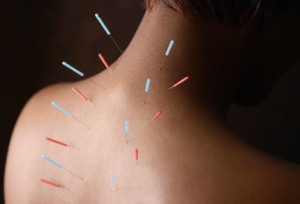What is acupuncture?
Acupuncture is a traditional Chinese medical treatment where practitioners stimulate specific points on the body most often by inserting thin through the skin.
Many types of chronic pains such as low-back pain, neck pain, and osteoarthritis can be eased by acupuncture. It also may help reduce the frequency of tension headaches and prevent migraine headaches. Hence, acupuncture is considered to be a reasonable option for people with chronic pain. However, clinical practice guidelines recommend inconsistently about acupuncture.
The effects of acupuncture on the brain and body and how best to measure them are only beginning to be understood. Current evidence suggests that many factors-like expectation and belief-that are unrelated to acupuncture needling may play important roles in the beneficial effects of acupuncture on pain.
Acupuncture helps to relieve the pain conditions namely,
Low back pain,
Neck Pain,
Osteoarthritis/Knee pain,
Headache,
Depression, smoking cessation, etc
Flow chart of acupuncture treatment
Acupuncture
↓
Local biological responses
↓
Mediated by sensory neurons and central nervous system
↓
Activates brain and periphery
Opioid peptides are released during acupuncture have analgesic affects. Naloxone, an opioid antagonist, reverses the analgesic effects.
Acupuncture stimulates the hypothalamus and the pituitary gland, resulting in a broad spectrum of systemic effects. Changes in the regulation of blood flow, both centrally and peripherally, have been documented where secretion of neurotransmitters and neurohormone are altered. There is also evidence that there are alterations in immune functions produced by acupuncture. Which of these and other physiological changes mediate clinical effects is at present unclear.
More to consider in acupuncture
The credentials of acupuncturist must be checked before visit. Most states require a license, certification, or registration to practice acupuncture; however, education and training standards and requirements for obtaining these vary from state to state. Although a license does not ensure quality of care, it does indicate that the practitioner meets certain standards regarding the knowledge and use of acupuncture. Most states require a diploma from the National Certification Commission for Acupuncture and Oriental Medicine for licensing.

